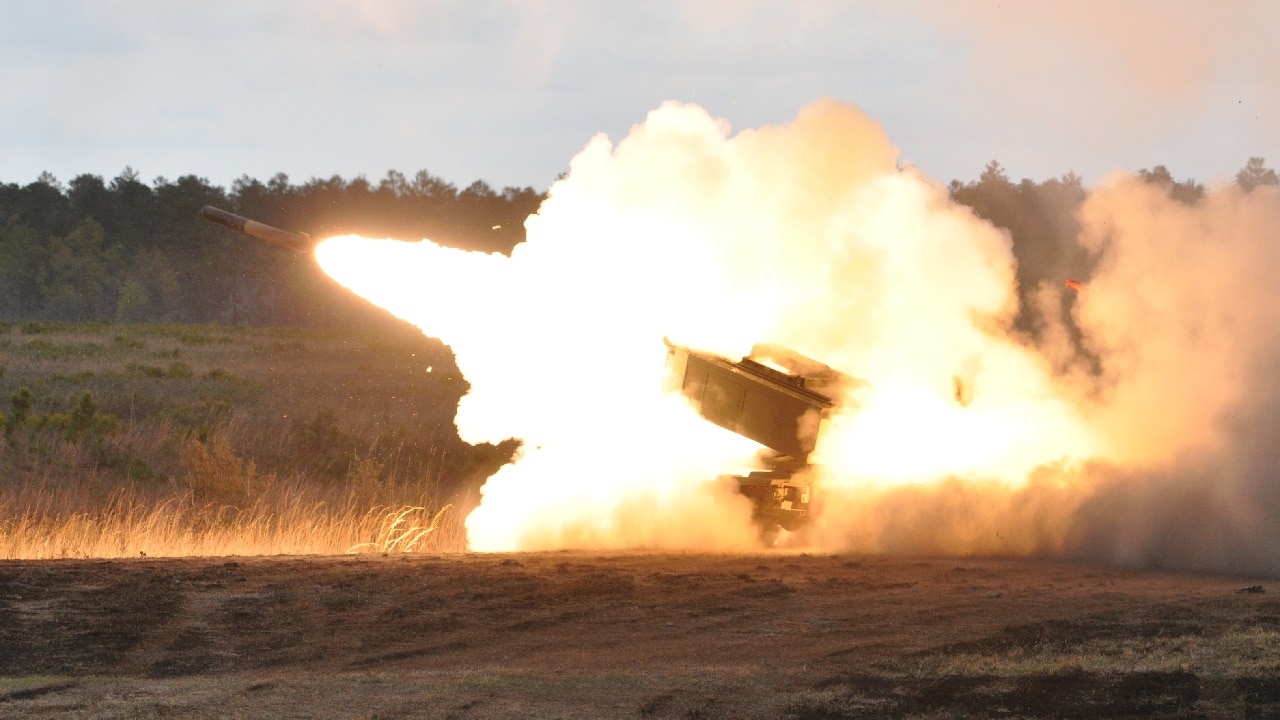Without a doubt, in the war in Ukraine, the High Mobility Artillery Rocket Systems (HIMARS) has been one of the most talked-about weapon systems of the last few weeks.
Ever since the U.S. military announced its decision to send the M142 High Mobility Artillery Rocket Systems to Ukraine last month, the weapon system has been making the rounds.
The M142 HIMARS
Crewed by just three men (driver, gunner, and section chief), the M142 HIMARS can fire its arsenal of six missiles against targets located up to 43 miles away. As a wheeled vehicle, the M142 HIMARS is highly mobile and can launch its missiles and reposition itself within seconds.
“These are critical capabilities to help the Ukrainians repel the Russian offensive in the east. One such need is the High Mobility Artillery Rocket System I just mentioned, which responds to Ukraine’s top priority ask. This system will provide Ukraine with additional precision in targeting at range. The Ukrainians have given us assurances that they will use this system for defensive purposes only,” Dr. Colin Kahl, the Undersecretary of Defense for Policy, had said during a press briefing when the weapon system was first announced.
For now, the Pentagon has committed an additional four M142 HIMARS to Ukraine for a total of eight. In addition, it keeps sending Guided Multiple Launch Rocket System (GMLRS) munitions to replace those used by the M142 HIMARS against Russian targets.
The first four High Mobility Artillery Rocket Systems the U.S. military sent to Ukraine were already prepositioned in Europe in anticipation of the need to give them to the Ukrainian military.
HIMARS Wreaking Havoc
Increasingly more videos are popping up showing the Ukrainian military using the HIMARS weapon system to accurately strike Russian positions, both close to the frontline and miles behind it.
“In terms of the use of the HIMARS, you’re exactly right. The system has just recently been introduced, so the Ukrainians are still very much in the early days of operating this system, but what I can tell you is because it is such a precise, longer range system, the Ukrainians are able to carefully select targets that will undermine, you know, the effort by Russia in a more systematic way, certainly more than they would be able to do with the shorter range artillery systems,” a U.S. defense official said last week.
In a sense, the HIMARS has freed the Ukrainians from really taking the fight to the Russians. Before the introduction of the weapon system, Russian ammunition depots, command and control centers, and other military targets of interest that were located within occupied Ukrainian territory and close or inside urban centers were pretty much out of the question for the Ukrainians. In sharp contrast to the Russian tactics, the Ukrainian military tries to avoid launching strikes that could result in collateral damage and kill or wound civilians. They are, after all, fighting on their behalf, not against them. But the accuracy of the HIMARS has enabled the Ukrainian military to revisit targets that were once out of the question because of the potential for unwanted collateral casualties.
“So what you see is the Ukrainians are actually systematically selecting targets and then accurately hitting them thus providing this, you know, precise method of degrading Russian capability. And I see them being able to continue to use this, you know, throughout Donbas,” the U.S. defense official added.
1945’s New Defense and National Security Columnist, Stavros Atlamazoglou is a seasoned defense journalist specializing in special operations, a Hellenic Army veteran (national service with the 575th Marine Battalion and Army HQ), and a Johns Hopkins University graduate. His work has been featured in Business Insider, Sandboxx, and SOFREP.

